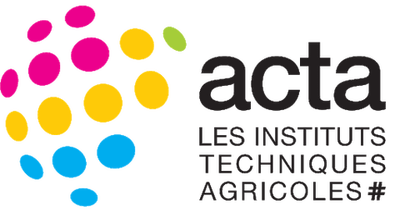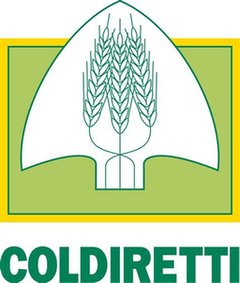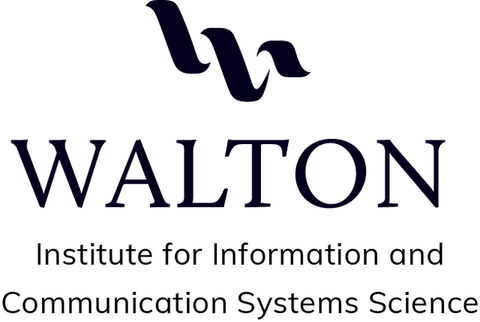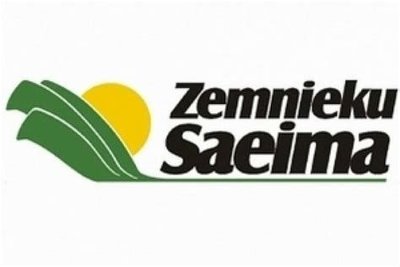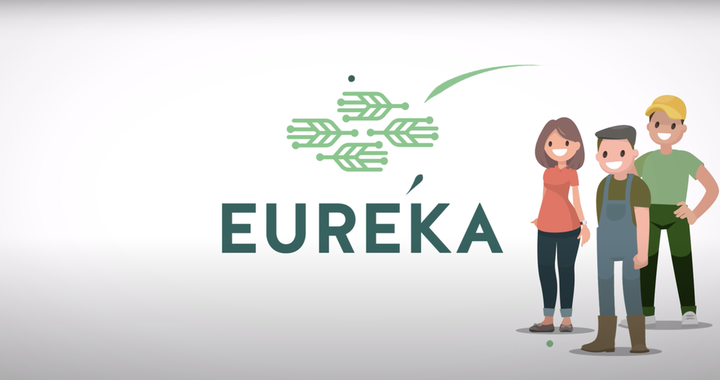overview of The changing policy landscape
Taking stock
"Especially in digital farming a proper knowledge transfer system is a cornerstone for a fruitful digital transformation."
"By working with supply chain partners including feed suppliers, food processors, supermarkets and consumer groups, farmers can play a leading role in reducing our greenhouse gas (GHG) emissions."
Challenges for the Agriculture in EU and Germany
One of the most interesting components of recently submitted national CAP strategic plans is the approach to foster the so-called “Agricultural Knowledge and Innovation Systems...
RC
North West
Europe
"The further digitisation of agriculture can help to lead the much-discussed transformation requirements in the right entrepreneur-friendly direction."
Online knowledge reservoir – EU FarmBook
In the seven years of implementation of the Horizon 2020 Framework Programme, the European Commission invested nearly one billion euros...
How EAFRD can help developing digital tools within agriculture
France submitted its national CAP strategic plan (NSP) to the EC on December 22nd, 2021...
RC
France
Agricultural policies encompass a wide range of issues, including providing sufficient food at reasonable prices for consumers, securing food safety and improving environmental quality. The 2021-2022 period has been busy, with the vote of landmark regulations such as the Common Agricultural Policy (CAP) and upcoming discussions on pesticides or the implementation of the Farm to Fork strategy.
In this section, 10 organisations from our network share their perspective and analysis.
State of Play of the CAP reform
The future CAP that is scheduled to start on 1st January 2023 has its basic acts approved and published in the Official Journal of the EU (OJ EU L435, 6th December 2021). The secondary legislation is currently under preparation with some already adopted and published, others waiting for publication and some others that will be adopted during 2022.
As part of this process Member States had to prepare a Strategic Plan – NSP – (one per country, with an exception for Belgium which will have one for Flanders and another for Wallonia) that integrates the programming of all measures and intervention in Pillar 1 and Pillar 2 in one single document. These NSPs were supposed to be submitted to the European Commission by 31st December 2021. However, by that deadline, only 18 out of 27 MS had done so. Currently (end of January) 22 MS have submitted them. The delays in the countries that have not yet submitted these plans (Bulgaria, Belgium (both Flanders and Wallonia), Germany, Romania, Slovakia) relate mostly to changes in government and/or Minister for Agriculture. In Belgium, the delay relates to the ongoing public consultation process.
Meanwhile, the European Commission created a website that centralises al all elements related to the NSPs and where they include a link to the national strategic plans already published. At the end of January, this site included links to the NSPs of 16 Member States – those that have published them at the national level.
The Commission services from reception of the NSPs will carry out an assessment and will produce observation letters that will be communicated to the Member States. This should occur around 3 months after submission of the NSP. After revision/adjustment of the NSP by MS, they are re-sent to the Commission which has an additional 3 months for final approval and transmission to MS. Implementation will be carried out in and by the MS so that the new CAP starts by 1st January 2023.
In Copa and Cogeca we have been exchanging with members on the content of their respective NSPs and the choices made regarding the main types of measures and interventions. Particular attention is being put into eco-schemes, agro-environment-climate measures and investments.
At this stage, our concerns are mostly focused on the potential delays in the approval process of the NSPs and the secondary legislation. This will impact negatively on farmers’ timely preparations for the future CAP as well as potential delay the payment of support in 2023 by Member State.
Building a strong AKIS for agricultural innovation transfer
One of the most interesting components of recently submitted national CAP strategic plans is the approach to foster the so-called “Agricultural Knowledge and Innovation Systems” (AKIS). Such knowledge systems generally contain organizations dealing with education, advisory, research, technology providers, media and agricultural practitioners.
Since policymakers understood that knowledge transfer cannot be seen as a single-way process (research -> advisory -> farmers) but rather a multidimensional exchange of expertise, the agricultural policy looks for ways to unleash cooperation. This will be crucial to support the Green Deal, the Farm-to-Fork strategy but also the Biodiversity Strategy with ready-to-use approaches that can help farmers make the necessary transitions and meet upcoming challenges.
Especially in digital farming, a proper knowledge transfer system is a cornerstone for a fruitful digital transformation. While the Austrian average farm size is smaller than the European one and the share of part-time farmers is quite high, continuous advisory and further education are important to stay up to date with the latest knowledge and so to maintain competitiveness. Farmers need support in identifying and applying smart but cost-effective tools which fit their individual holdings and problems in production, farm management and marketing.
Roles change and vary
But how to apply AKIS in order to bring digital technologies to farmers since digitization is such a broad field of specific technologies that are, in addition, changing very fast? In the future roles within AKIS will not fully differ anymore between different professional groups. Why not use an experienced farmer as a trainer? Why not include advisors more and more in the conception of research projects? Why not use agri- and non-Agri media for bringing expert knowledge to farms?
The key role of AKIS is to set an institutional framework where all these actors continuously communicate, truly exchange their knowledge and naturally use the various strengths of different organizations to support farmers in their work. AKIS aims to create a permanent innovation ecosystem in the member states that continuously promotes the exchange of knowledge and innovation and the networking of stakeholders, thus bridging the gap between science and practice and contributing to the achievement of the CAP objectives.
European and national policy support
As mentioned, there will be increased support in building and implementing the AKIS approach at the national and EU levels. While individual member states may choose different measures fitting to their national situation, AKIS already plays an important role in the Horizon Europe program. The allocation of a considerable part of the research funds from Cluster 6 (Food, Bioeconomy, Natural Resources, Agriculture and Environment) is linked to the application of the multi-actor approach: This provides - in the spirit of a well-functioning AKIS - that actors from different areas (especially from extension and agricultural practice) participate in the projects from start to finish. This intends to ensure that work is carried out on practical solutions to practical problems and that these solutions are applied more quickly and more widely through the involvement of end-users and multipliers.
MODERNISATION OF AGRICULTURE IN THE FRENCH CAP STRATEGIC PLAN
In 2022, there is a transitional regulation before the 2023-2027 CAP entries into force. The 2022 regulation extends most of the CAP rules that were in place during the 2014-2020 period, while also ensuring a smooth transition to the future framework of the CAP strategic plans. Although no new call for an operational group will be launched in 2022, the French national rural network will be financed before the French CAP Rural network takes on, adapting itself to the functioning of the current French rural network.
The National CAP Strategic plans were to be submitted by each member state by January 1st, 2022. Following this, the Commission has six months to approve the plans before their implementation in January 2023.
Article 114 of the EU Regulation 2021/2115 establishing rules for national CAP strategic plans mentions that the elements that ensure modernisation of the agriculture and rural areas and the CAP shall contain "(i) a description of the organisational set-up of the AKIS; (ii) a description of how advisory services […], research and the national CAP network referred to in Article 126 will cooperate to provide advice, knowledge flows and innovation services and how the actions supported under interventions pursuant to Article 78 or other relevant interventions are integrated into the AKIS” and “a description of the strategy for the development of digital technologies in agriculture and rural areas and for the use of those technologies to improve the effectiveness and efficiency of the CAP Strategic Plan interventions.”
In this context, the French National Strategic Plan defines national objectives based on the European targets, one of which is to ensure the modernisation of French agriculture by mobilising digitalisation. The first goal is to enable the use of digital tools throughout the country, by improving access to the network and to very high speed. Another objective is to enable the development of innovative digital service companies for agriculture through investment support. Supporting the use of data and the development of digital solutions associated with this data is also an important point of work. This development must be carried out while ensuring farmers’ security in their use of digital and connected agricultural equipment, to guarantee a good control of their business and personal data. The National Strategic Plan also raises the important issue of disseminating knowledge about digital farming through the development of appropriate training. The operational implementation from 2023 of actions derived from these objectives will provide interesting opportunities for the digital sector applied to agriculture in France and Europe.
How EAFRD can help developing digital tools within agriculture - the Pays de la Loire Region perspective for France.
Challenges and opportunities in the latest EU agricultural, environmental and digital policy instrument
France submitted its national CAP strategic plan (NSP) to the EC on December 22nd, 2021. The development of digital tools, competencies and their use are directly targeted in this document, especially in the scope of the CAP second pillar.
The implementation of the European Agricultural Fund for Rural Development (EAFRD) according to the NSP shall answer several needs:
Maintain competitiveness for the French agriculture and agri-food industry
The development of digital tools should improve production conditions & rationalize logistic flows, as well as stock and supply management. They should also better meet societal expectations such as transparency and information to the consumers.
Although digital tools are already used in certain sectors of agriculture, their deployment will be encouraged to improve working conditions, upgrade production systems and ensure better traceability all along the food supply chain.
Strengthen human capital, develop competencies, facilitate installation of young farmers and transmission of farms
Supporting digital investment, knowledge dissemination, training and business advice should greatly help raise awareness on the use of digital tools and the benefits resulting from them in the whole environment related to farming.
Support rural areas
In rural areas, public action supports several transitions: food, energy and digital ones.
These achievements are made possible thanks to the LEADER program also funded by the EAFRD fund.
Undertake a transition to agroecology
The development of technological and digital tools should accelerate the production conditions to better answer societal expectations such as environmental protection, animal welfare, health and should notably help the development of low carbon agriculture.
Nevertheless, the sole NSP will not be able to clear all the hurdles to the development of the digital:
The French “high-speed network” plan should facilitate the use of new technology in rural areas and farms thanks to better network coverage.
Concerning the use of data, several national reflections are ongoing on the topic, such as a charter conducted by the major national agricultural union.
Public and private actors are also organizing themselves in order to cooperate and build some initiatives such as common reports and approaches.
At the EU level, several tools will help the deployment of digital transformation. The agricultural and food ecosystems must seize this opportunity through the EDIHs, Horizon Europe program and partnerships for example.
National and European strategies are important to concretize in the year to come to the agriculture and food transition towards healthier and more sustainable practices.
The development of digital solutions is only one of the tools serving this purpose.
‘Farm of the Future’: Journey to Net Zero report
Climate change has major consequences for UK farmers and land managers, argues the Royal Agricultural Society of England (RASE) in its Briefing Paper released to coincide with the UN climate change conference - COP26 in November 2021.
Showcasing innovative solutions, the briefing paper “Farm of the Future: Journey to Net Zero” addresses key policy issues, including: sound economic valuation of natural capital, a consistent cross-sectoral food, energy and carbon transition policy, the introduction of standardised farm-level emissions accounting, and the adoption of environmental and carbon impact labelling on food to help inform consumer choice.
Released ahead of a fuller report, to be published in early 2022, RASE examines the need for urgent decarbonisation of the land-based industries. Farming, which occupies 75% of the UK landmass, has a vital role to play in the transition of rural and bio-resource economies. The paper highlights the emissions reduction options, available to farmers and land managers. These include improved environmental resource management, low carbon and renewable energy options, low emission farm vehicles and fuels, digital technologies and robotics.
Each section of the "Farm of the Future" has a vision of how farming might adapt to the wider challenges posed by climate change, followed by a narrative and concluding with some general policy insights.
Better valuation of nature and natural capital is vital in meeting the UK’s decarbonisation and food security goals, as well as in restoring soil health, increasing biodiversity and managing land and water resources.
Other recommendations include improved access at the farm level to independent, cost-effective decarbonisation advice, including the establishment of a farm innovation and demonstrator network, and support for more local action groups to improve soil and water resource management in rural areas.
Philip Gready, chairman of the Royal Agricultural Society of England, states that “The role of agriculture in decarbonisation is much wider than energy transition. Farms can take practical action to build and sequester carbon in soils; improve biodiversity; embrace ‘smart’ technologies, and improve resource use and the value of bio-resources. By working with supply chain partners including feed suppliers, food processors, supermarkets and consumer groups, farmers can play a leading role in reducing our greenhouse gas (GHG) emissions.”
This ‘Journey to Net Zero’ briefing paper focuses on how better policy can enable farmers to build a healthier, more resilient and nature-friendly food supply system in the UK. The main “Farm of the Future” report in Spring 2022 will help to inform farmers about future priorities and the technologies in place now and likely to emerge over the next decade.
A copy of the pre-COP26 briefing paper can be accessed here.
EU Sustainable Food Systems: Our Vision
Introduction
The CAP has been and still is the policy that more than any other, has accompanied European farmers for years towards an increasingly sustainable production. That is the main reason Coldiretti, the largest organization representing farmers in Italy and in Europe, believes that it must remain both the economic and political reference for the agricultural sector to continue producing quality food in an environmentally, economically and socially sustainable way. Nevertheless, Coldiretti welcomes the initiative of the European Commission to launch a process of defining a harmonized policy framework to increase the sustainability of food systems and this document provides some comments on specific themes which are therein addressed. The initiatives that are “on the EU table” and linked to the Green Deal, such as the “Farm to Fork” (F2F) and the “Biodiversity” strategies, the “Fit for 55” package, the EU Soil strategy, to name just a few, will have to be translated into legislative proposals from 2022 onwards. Consequently, changes that will redefine our agricultural model are to be expected. That is why we strongly believe that consistency between the different policy initiatives must be established.
The European Union is nowadays the reference model at the global level in terms of production standards, constantly committed to ensuring both quality and safe productions for consumers, in full respect of the environment and the natural capital at their disposal. In this sense, Coldiretti is of the opinion that overall, the new policies which stem from the European Green Deal, must operate in the wake of the preservation of distinctiveness, tradition, and true sustainability of the European agricultural and agri-food model, safeguarding both the profitability of the work of farmers, and the shielding of producers from low quality food imports, and economic, social, and environmental dumping measures.
What we suggest focusing on – Some examples
Soil and water resources use and management
Coldiretti welcomes the European Commission's initiative to publish an EU Soil Strategy and, in this regard, it believes that farmers should be remunerated for the land conservation work they carry out and especially for their contribution in restoring carbon, and therefore fertility, to the soils. In this context, the in bold carbon farming initiative represents a step in the right direction.
With reference to water, it is important to guarantee purity and quality of the water for irrigation, applying adequate quality standards that are different depending on the specific use and ensuring the functioning of the reuse systems and the adequate application of the legislation.
“Fit for 55” and emissions reduction
The “Fit for 55” package can represent an important step in consolidating the role of the agroforestry sector in climate mitigation policies. The Commission's approach seems to finally reach the conclusion (long advocated also by Coldiretti) of considering the absorptions of the agroforestry sector (LULUCF) functional to offset the emissions of the agricultural sector. It remains to be seen, however, how the EU intends to manage this important step, especially with reference to the current flexibility mechanisms provided for between the LULUCF and the Effort Sharing Regulation. The "Fit for 55" package should not merely increase the objectives of the LULUCF and ESR regulations but should constitute the change needed for the definitive recognition of the central role of the agroforestry sector in climate strategies.
The organic sector
Coldiretti welcomes the goal brought forward by the European Commission in its F2F strategy, to reach 25% of agricultural land dedicated to organic farming by 2030 and the EU action plan for organic. However, it believes it is necessary to follow up as soon as possible to the recommendation of the European Court of Auditors, which calls for strengthening controls on imported organic products that do not comply with the same safety standards as European ones.
Input and innovation in agriculture
The objective of reducing chemical inputs in agriculture, as envisaged by the F2F and Biodiversity strategies, is certainly an ambitious and acceptable goal. However, it is necessary for the European Commission to provide the right tools and support measures, to facilitate the access and use of alternatives, and therefore avoid the danger for farmers of "not having solutions” at hand.
Innovation will play a central role, with appropriate funding of precision farming and digital technologies, in reducing chemical inputs and increasing the variety of the available plant material. A decisive and well-targeted focus on innovation will also be essential to encourage the role of the farmers in the search for alternatives to chemical inputs.
Sustainability Targets In Latvia: Opportunities And Challenges
Like all EU Member states, Latvian authorities have to implement certain Green Deal targets into our national CAP Strategic Plan. All related policies are considered. When considering such acts as the EU Soil Strategy, Sustainable Use of Pesticides Directive and Organic farming regulation, Latvia has an opportunity to be one of the EU leaders in these parameters. Currently, Latvia already has one of the largest organic sectors in the percentage of overall agricultural land, as well as Latvia, has shown to have one of the lowest amounts of plant protection products sold on one hectare of agricultural land. Concerning Carbon Border Adjustment Mechanism, currently, Latvia is one of those member states with the lowest amount of GHG emissions from one hectare of land. Although it might sound promising, there are large challenges ahead. Currently, Latvia has one of the largest GHG emissions when calculating on single product unit. Although Latvia has nearly 15% of Organic farming area, production output is very low, currently standing only for around 3% of the overall food production of Latvia. When looking at pesticide statistics, although low, there is a rising trend, but when trying to further reduce this input, farmers and consumers might face certain quality and quantity reductions in food available due to various pests.
When considering the digitalisation of agriculture and rural areas, Latvia currently has one of the widest broadband network coverage in the EU, therefore the country has a high potential for implementation of smart farming technologies as well as establishing smart villages. The challenge arises when co-financing from the EU or state is needed since there is a substantial reduction in the financing of the Rural Development envelope as of 2023.
Regarding soil strategy, it has to be admitted that overall agrochemical properties of soil, such as pH, organic matter, the content of nutrients etc., are increasing. But the rise of soil quality is not sufficient and lagging far behind EU average soil health. The bottleneck could be in the organic sector, where the quality of soil currently is lagging behind the overall conventional or non-organic sector.
About the EU Methane strategy, it seems that Latvia could achieve these targets as a result of the decline in the number of dairy cows, but it is important to underline that the amount of beef cattle is increasing, and the remaining dairy cows are increasing their output, which leads to higher methane emissions. Currently, the CAP strategic plan emphasizes various methods to reduce methane emissions, such as climate-friendly spreading of organic fertilizer, covering slurry and manure storage and establishing new biogas plants.
Author: Valters Zelčs
Challenges for the Agriculture in EU and Germany
The debate on the implementation of the "Green Deal" and the "Farm to Fork Strategy" is gaining pace from an agricultural perspective. It is to be feared that food production will migrate to other continents. A so-called leakage effect would be the consequence. Environmental impacts of food production would be shifted to third countries, where farming standards are far lower than in Europe and particularly in Germany.
The Commission's proposals for the EU Soil Strategy 2030, the EU Methane Strategy and the EU Climate Change Policy, which were presented in 2021, have not been thought through to the end from the perspective of agriculture and forestry. There is a lack of concrete instruments and realistic targets in the EU Commission's proposals. Emissions from food production will remain unavoidable in the future. Concrete business models for carbon farming, i.e. the targeted build-up of humus in the soil, must be developed. In the area of emissions, methane from animal husbandry urgently needs a reassessment of its impact as a short-lived greenhouse gas. Biogenic methane does not produce any additional greenhouse gas effect if animal stocks remain unchanged.
Concerning the Commission's proposal for a new EU border adjustment mechanism "CBAM" for climate protection, it is important to realise that our agriculture with its high EU standards can only survive in the market if a border adjustment for climate protection also takes place for agricultural imports. The EU must therefore introduce an appropriate procedure to prevent agricultural production from migrating out of the EU.
The implementation of the reform of the EU agricultural support from 2023 to 2027 will lead to a confusion of support in Germany between the existing agri-environmental measures of the federal states and the new Eco Schemes. The Eco Scheme premiums are calculated far too low. Especially in favourable areas, the Eco Schemes will not pay off for the farms. Moreover, impracticable requirements for crop rotation, fallow land and grassland management, as well as conditionality requirements that go beyond EU law, will lead to many farmers dropping out of the direct payment system completely. A positive aspect is the obligation for Member States anchored in the new EU law to introduce a digitally supported area monitoring system by 1 January 2024 at the latest, thus simplifying the new CAP via the possibilities of digitisation. The German Farmers' Association has worked out how the advances from digitisation can be consistently used here in its concept "CAP Application 4.0".
But it is not only initiatives at the EU level that pose major challenges for German agriculture. National debates about a supposedly necessary transformation process in agriculture increase the economic pressure on farms. Above all, however, they lead to uncertainty and inhibit investments in future-oriented and competitive agriculture. The transformation process in German agriculture has already reached unprecedented dimensions. In the last decade, about 4 to 5 per cent of pig and dairy farmers gave up their farms each year. The development in the field of special crops such as fruit growing or viticulture is similar. In arable farming, on the other hand, the structural change was much smaller. This has something to do with securing assets via the soil and, above all, with the fact that thanks to great advances in digitalisation, arable farming can be practised much more easily by "management by delegation" via contractors and machinery rings, even on a part-time basis.
The further digitisation of agriculture can help to lead the much-discussed transformation requirements in the right entrepreneur-friendly direction. Above all, it offers great opportunities to help objectify the critical public discussion about modern and sustainable agriculture and to make excessive bureaucratic requirements superfluous.
Author: Peter Pascher
Online knowledge reservoir – EU FarmBook
In the seven years of implementation of the Horizon 2020 Framework Programme, the European Commission invested nearly one billion euros in projects related to agriculture, forestry and rural development. These projects have created a large number of various digital knowledge objects, including, among others, research publications, practice abstracts, reports, videos, podcasts, and infographics with valuable information and knowledge about best and innovative practices. However, the use of this knowledge has not yet been fulfilled to an adequate extent. The fact that most of this digital content ceases to exist after the end of the projects, results to a limited uptake by the various agricultural stakeholders. Furthermore, this can cause actors that could continue research and development reinvent the wheel. Hence, there is a need for ensuring the long-term availability of this content based upon good data sharing practices.
This is the challenge that the EUREKA project has been working on for the last 2 years, building upon the previous work of the EURAKNOS project.
EUREKA partners have been collaborating to develop and test an online agricultural knowledge platform designed specifically for collecting and sharing the many different types of outputs produced by EU R&I projects, with a Multi Actor Approach. These outputs (knowledge objects) are intended for practical, rather than scientific, use. Because of the automatic translation system many of these outputs can be used directly by all European farmers and foresters, while others will need some interpretation and application by advisors, trainers and other educators, innovation brokers and others active in the knowledge and innovation systems that are associated with farming and forestry, and which are underpinning the objectives of the new CAP.
A prototype of the first EU-level “online knowledge reservoir” of its kind was developed in the previous EU Horizon 2020 project EURAKNOS, which focused on European Innovation Partnership (EIP) Thematic Networks. During the last two years, the follow-up project EUREKA has refined and evolved the platform into the first working version of the so-called EU FarmBook. The EU FarmBook “version 1.0” is to be released in January 2022 for testing with a broad range of users across the EU.
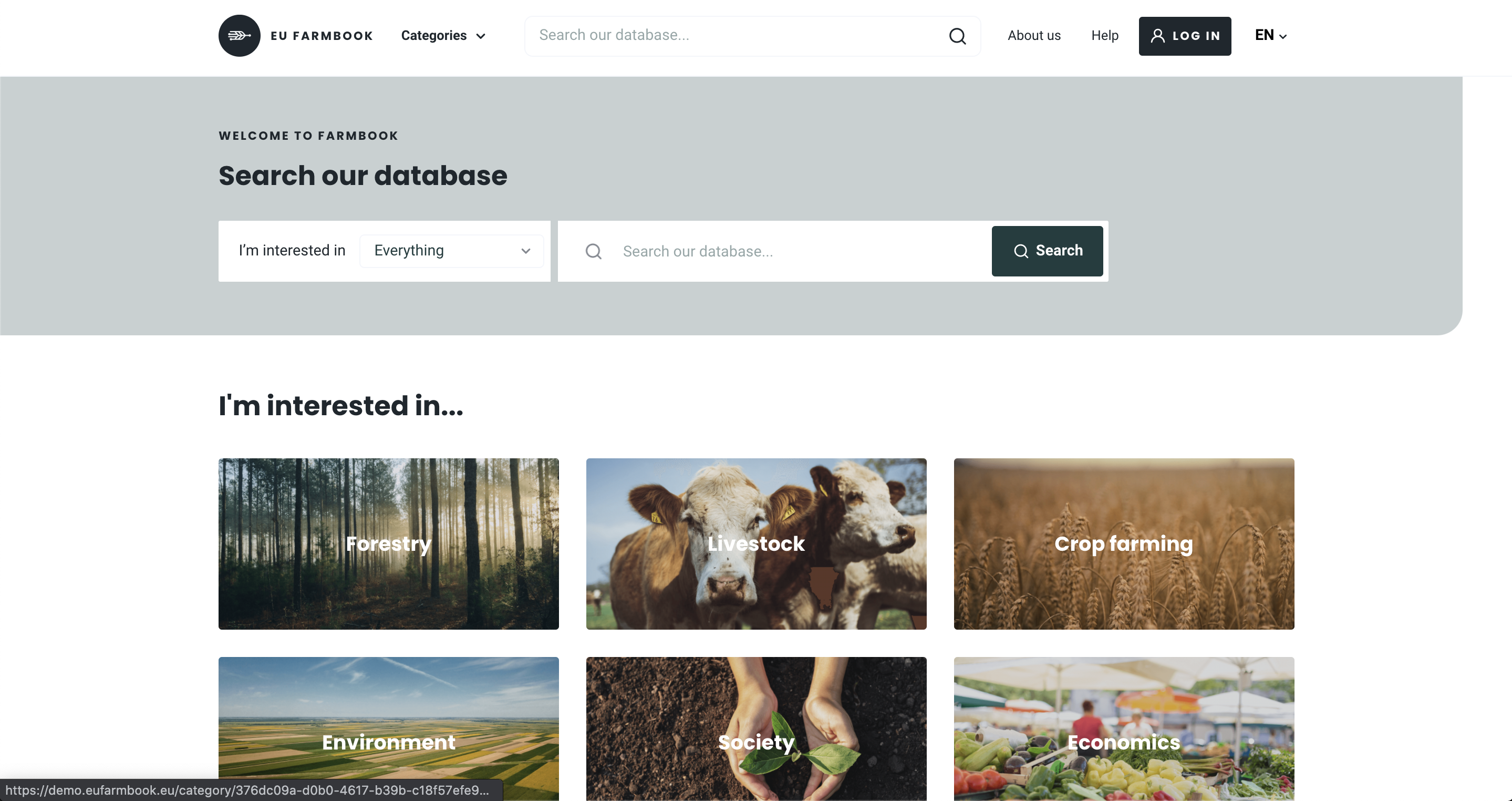
A few similar platforms already exist at the national level, and it is intended that the EU FarmBook will eventually connect with them, as well as with others known to be under development.
The EU FarmBook does not stand alone, its practical value will only grow and continue to be enriched with input from public and private partners in EU-funded research and innovation projects, ranging from large-scale EU-level multi-actor projects to more local EIP-AGRI Operational Groups.
According to Inge Van Oost at DG AGRI of the European Commission, “EURAKNOS and EUREKA have built a solid foundation for the future EU knowledge reservoir that will make an increasing volume of practice-orientated knowledge more easily accessible, interactive and accessible! The essential next steps will be to connect with the national and regional Agricultural Knowledge and Innovation Systems – the AKISs - that are being strengthened by the Member States in their CAP Strategic Plans for 2023-2027”.
The Eureka results / EU FarmBook and the SmartAgriHubs Innovation portal can be complementary: where the EU FarmBook focuses on general results from Horizon Multi Actor Projects, the Innovation Portal focuses on digital innovations in projects linked to Agriculture and Technology. Already some links are made in the information and some joint activities are deployed. In the near future, more consultation is foreseen to come to effective re-use of information.

This project has received funding from the European Union’s Horizon 2020 research and innovation programme under grant agreement Nº 862790.
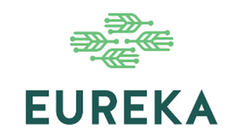
ARTIFICIAL INTELLIGENCE POLICY AND SOIL PROTECTION IN IRELANDOnline knowledge reservoir – EU FarmBook
The EU’s approach to Artificial Intelligence (AI) centres on excellence and trust, aiming to boost research and industrial capacity and ensure fundamental rights. The research in AI should focus on building a resilient Europe for the digital decade where people and businesses can enjoy the benefits of AI. It aims at 2 areas: Excellence in AI and Trustworthy AI. The EU will achieve this by:
Making the EU the place where AI thrives from the lab to the market;
Ensuring that AI works for people and is a force for good in society;
Building strategic leadership in high-impact sectors.
The EU is particularly proactive in advancing both policy and legislative proposals related to AI and the data flows that unpin this technology. However, AI-related developments in Ireland have been relatively slow in comparison. In 2021, the Irish Government published Ireland’s first National AI Strategy ‘AI-Here for Good’ states “how Ireland can be an international leader in using AI to benefit our economy and society, through a people-centred, ethical approach to its development, adoption and use” which will indeed lead to more research and funding opportunities in this area. The National Strategy involves existing and new initiatives by and across multiple Government departments and agencies. While the prioritised actions in data, skills and trustworthiness are vital prerequisites, comparison with the EU coordinated plan for AI indicates the need for strong coordination across enterprise and public sector actions and to move rapidly in research and innovation which is a major challenge in the field of AI for the country.
The Adaptation to climate change strategy shows the importance of healthy soils in minimising the impacts of floods and droughts. Hosting 25% of the planet’s biodiversity, the soil is the very foundation of the food chain and its health is directly linked to human wellbeing. Carbon removal through restoration and better management of soils will be essential to achieve net-zero greenhouse gas emissions by 2050. It has been estimated that up to 70% of soils in the EU are not healthy due to constant unsustainable land use and management, over-exploitation and pollution. The new EU soil strategy for 2030 sets out a framework and concrete measures to protect and restore soils, and ensure that they are used sustainably. The strategy identifies the key soil threats in the EU as erosion, floods and landslides, loss of soil organic matter, salinisation, contamination, compaction, sealing, and loss of soil biodiversity. It also presents soil degradation trends as well as challenges to ensure protection.
The CORINE (Co-ORdinated INformation on the Environment) data series is a key data source for informing environmental and planning policy on a national level. The most recent CORINE assessment shows that agriculture is the primary Land Cover type within Ireland (67.6% of national land cover), followed by wetlands (14.9%) and forestry (9.5%). Apart from the CORINE Land Cover data sets, no data from Irish authorities about soil sealing or land take are available which is a major challenge for the research in this area. Ireland appears to have no policies directly focused on the prevention of soil sealing, although the expansion of urban development and its consequences are acknowledged as a growing problem. There is no comprehensive information on the quantity of soil being lost to surface sealing in Ireland on an annual basis, the consequences of this are in terms of loss of soil functionality and increased flooding risks which could be a challenge as well as an opportunity for further research.
